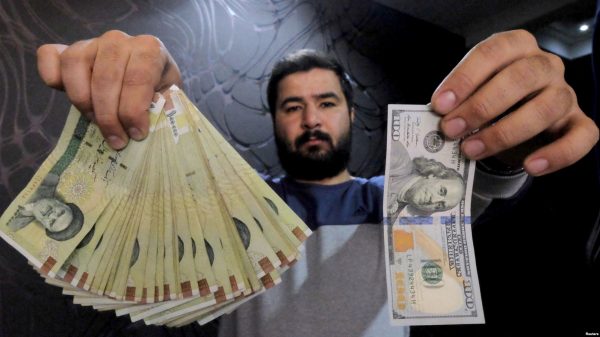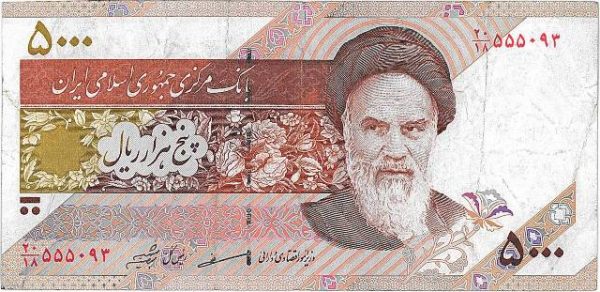
Britain, France and Germany on Thursday launched a trade mechanism to bypass US sanctions on Iran, drawing praise from Tehran — and a warning from Washington.

Brussels hopes the long-awaited special payment system will help save the Iran nuclear deal by allowing Tehran to keep trading with EU companies despite Washington reimposing sanctions after President Donald Trump abruptly quit the accord last year.
The three countries — the European signatories to the 2015 deal that curbed Tehran’s nuclear ambitions in return for sanctions relief — launched the device, which has been in preparation for months, at a meeting of EU foreign ministers in Bucharest.
Iran’s Foreign Minister Javad Zarif welcomed the news as a “long overdue first step”.
“We remain ready for constructive engagement with Europe on equal footing & with mutual respect,” he added in a tweet.
But US officials dismissed the idea that the new entity would have any impact on efforts to exert economic pressure on Tehran, and fired a fresh warning at anyone thinking of trading with the Islamic republic.
While the new institution, called INSTEX — short for Instrument in Support of Trade Exchanges — is a project of the three governments, it will receive the formal endorsement of all 28 EU members.
The company was registered in Paris on Tuesday with an initial 3,000 euros in capital and a supervisory board with members from France and Germany, and chaired by a Briton.
“INSTEX will support legitimate European trade with Iran, focusing initially on the sectors most essential to the Iranian population — such as pharmaceutical, medical devices and agri-food goods,” the foreign ministers of Britain, Germany and France — Jeremy Hunt, Heiko Maas and Jean-Yves Le Drian — said in a joint statement.
In the longer term, INSTEX aims to be open to third countries wanting to trade with Iran, the statement said — an ambition unlikely to please Washington.
Hunt said the move was “a clear, practical demonstration” of Europe’s commitment to continuing the nuclear deal, but insisted it “does not in any way preclude us from addressing Iran’s hostile and destabilising activities”.
Europe has toughened its tone on Iran’s ballistic missile programme, human rights record and interference in Middle East conflicts.
‘First step’
Iran’s deputy foreign minister Abbas Araghchi welcomed the move but said that to be of any value it must allow trading of sanctioned goods.
EU diplomatic chief Federica Mogherini, who has led the bloc’s efforts to save the nuclear deal, said INSTEX was “essential for the continued full implementation of the nuclear deal”.
INSTEX is not yet operational and needs Iran to set up a parallel structure of its own, a French government source told AFP — something which may take some time to complete.
While it is aimed at small and medium sized companies, the French source said it would send an important message to Iran about Europe’s commitment to keep the nuclear deal alive.
“We have to try to reduce the effects of Trump’s decision,” the source said.
“It is not a primarily commercial move but a strategic one.”
For some in the EU, INSTEX represents the start of a European fightback against Washington’s swingeing extra-territorial sanctions — which are enabled by the dollar’s role as the world’s dominant reserve currency.
Transatlantic discord
Washington has warned the EU against trying to sidestep its sanctions on Tehran, while the Europeans — along with the deal’s other signatories Russia and China — say Iran has not broken its side of the nuclear accord and should be allowed to trade.
The UN atomic agency has certified Iran’s compliance with its obligations 13 times and even the head of the CIA said this week that Tehran was abiding by the accord — drawing a furious response from Trump.
Joseph Giordono-Scholz, spokesman for the US embassy in Berlin, insisted INSTEX would not undermine America’s economic campaign against Tehran.
“Entities that continue to engage in sanctionable activity involving Iran risk severe consequences that could include losing access to the US financial system and the ability to do business with the United States or US companies,” he said.
A number of major international companies have already pulled out of Iran in the face of dire warnings that the US will vigorously pursue any company breaching the sanctions regime.
The launch of INSTEX comes with EU countries growing increasingly concerned about Tehran’s ballistic missile programme, as well as its human rights record, its interference in Middle East conflicts and recent attempted attacks against opposition groups in Europe.
(AFP)
Leave a Reply
You must be logged in to post a comment.